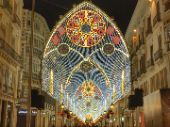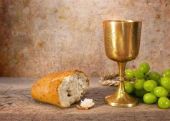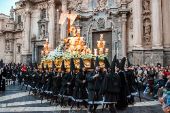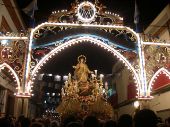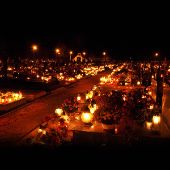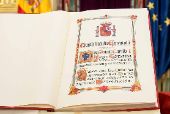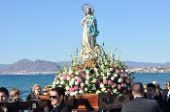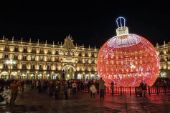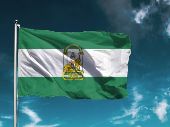2026 public holidays celebrated in spain
In total there are 16 holidays in Spain. There are 12 National holidays in Spain, 9 of which are celebrated jointly in Spain as they are non-substitutable national holidays (red days), and 3 set by the autonomous communities. In addition, each of Spain's 17 autonomous communities can set two additional days' holiday, one of which is normally taken on as a Regional Day on the same day each year, we have included the two Andalucía days as an example. Finally, every town, city or municipality can choose two more days to take as a local festival (festivo).
Traditions can vary widely throughout the country, and can vary depending on the religion, the family and individuals personal traditions.
Since holidays can be moved by the regions and municipalities can set their own local festivals it can get confusing. Typically if a holiday falls on a Sunday, it will be Monday as a day off in order to create a three-day weekend. In Spain when a holiday falls on a Monday or Friday it is considered a "Puente" (bridge) or long weekend.
For an up to date view of the holidays in your region visit the official working calendar (Calendario Laboral) on the Spanish Social Security Website.
This article was last updated in January 2026.
1st (Thurs)
spanish new years day (Año Nuevo)
This is usually celebrated with family meals and relaxation after the lively and late-night celebrations of New Year’s Eve (nochevieja). It’s a tradition to have lentil soup on January 1st as it’s believed to bring prosperity for the new year. Many people take a leisurely walk or outing, often to enjoy the typically mild January weather.
6th (Tues)
spanish epiphany / three kings day (Día de los Reyes Magos)
The Three Kings, known as the Wise Men or ‘Los Reyes Magos‘, are at the heart of the Epiphany celebration. These figures, stemming from Christian tradition, are believed to be Wise Men or Magi, each a king in his own right. This period is marked by the much-anticipated Kings Parade – a vibrant procession through the streets where the three kinds are seen showering the streets with sweets. This is traditionally also when gifts are given to family members and children. People typically eat a special Kings’ Day cake or bread called the Roscón de Reyes. It’s a sweet bread filled with dried candy fruits, topped with more fruits and sticky sugar, and decorated with a gold paper crown. Inside will be hidden a prize and a dried bean; the one who finds the prize gets to wear the crown and be king for the day, while the person who finds the bean must buy next year’s cake.
2nd (Thurs)
spanish MAUNDY THURSDAY (jueves santo)
This is a significant day during Holy Week. It commemorates Jesus Christ's institution of the Eucharist during the Last Supper, which is described in the Christian Bible. On this day, a ceremonial foot-washing ritual is performed to imitate Jesus, who washed his disciples' feet. In Spain, Maundy Thursday is observed as a public holiday in most autonomous communities except Cataluña and Valenciana.
spanish good friday / easter (el viernes santo)
This holiday is part of Holy Week, or "Semana Santa", which is the most important religious celebration in the country. Spaniards commemorate the day Jesus died on the cross. It is a day of fasting and repentance for sinful acts. Many Spaniards observe the tradition of not eating meat on Good Friday, instead, they often eat "Potaje de Vigilia", a simple dish made with cod, chickpeas, and spinach. The main events of Good Friday are the processions organised by various religious brotherhoods, or "cofradías". Members of these brotherhoods dress up in matching long and brightly colored robes, typically with tall pointed hoods that often only leave two small holes for the eyes. They parade through their city carrying huge, intricate floats, usually bedecked in gold and decorated with flowers and candles. These floats feature three-dimensional depictions of Jesus and the Virgin Mary from the story of the Passion of Christ. The most dramatic and passionate processions typically take place on Holy Thursday and Good Friday, when mourners dressed in black lace and carrying candles usually join in.
1st (Thurs)
spanish may day / labour day (dia del trabajador)
A holiday commemorating social progress and the rights of the workers' movement. It was first celebrated on May 1, 1889. After being prohibited for four decades the celebration was re-legalized and reinstated as a national holiday in 1978. It is marked by protests and manifestations all over the country, in which social advances are celebrated and workers’ rights are advocated. On this day, it is considered a mandatory resting day for all Spaniards to live a day of retribution for labor and the social rights of the workers’ movement. The holiday is celebrated with various events and activities.
15th (Sat)
spanish FEAST of the ASSUMPTION (Asunción de la Virgen)
This Christian feast day commemorates the belief that God assumed the Virgin Mary into Heaven following her death. The festivities often begin on August 11 and culminate on August 15 with grand celebrations. Some of the traditions associated with this event will vary by region and include costumes and decorations, processionals and festivals, community events and religious activities. This feast has been celebrated since the 18th century and is also known as the Day of the Virgen de la Paloma in Spain.
national spain day (Fiesta Nacional de España)
Spain's National Day, Fiesta Nacional de España, is celebrated on October 12 to mark Christopher Columbus’s arrival in the Americas in 1492. It symbolizes Spain’s historical influence and its cultural ties with the Spanish-speaking world. The day is a nationwide public holiday, with schools and businesses closed. The main event is a military parade in Madrid, attended by the King and government leaders, alongside cultural activities across the country. It also coincides with Día de la Hispanidad, highlighting Spain’s shared heritage with Latin America and reinforcing its global cultural connections.
1st (Sun)
spanish all saints' day (Todos Los Santos)
People from all over the country return to their town or village to lay flowers on the graves of deceased family members. This day is dedicated to remembering all the known and unknown saints of the church. The Spanish consider themselves fortunate in having two birthdays each year. They have their customary birthday to commemorate the day they were born but they also celebrate on the day of their personal patron saint. Most people will visit the graves of relatives and decorate them with elaborate floral displays. The Eucharist, or Mass, will often be performed in the cemetery several times during the day. There are a number of special dishes including roasted chestnuts, small almond cakes called pannellets, huesos de santo (the saint’s bones) which have marzipan, eggs and sugar syrup, and buñuelos de viento (puffs of wind) which are doughnuts liberally sprinkled with cinnamon and sugar.
6th (Sun)
DAY OF THE SPANISH CONSTITUTION (Día de la Constitución Española)
This day commemorates the approval of the Spanish Constitution of 1978. The constitution was ratified by the Spanish people in a referendum held on this day. It marks a significant milestone in Spain's transition to becoming a constitutional monarchy and democracy.
8th (Tues)
IMMACULATE CONCEPTION (Inmaculada Concepción)
This day celebrates the belief that Mary, mother of Jesus, was preserved from original sin all of her life. It's marked by religious ceremonies and festive events, offering a glimpse into the region’s rich spiritual heritage and lively cultural atmosphere. It's worth noting that this holiday is celebrated in many countries around the world, not just Spain. It's observed as a day of obligation with required church attendance for Roman Catholics. Despite its name, the Immaculate Conception actually refers to the conception of the Blessed Mother Mary, not Jesus.
25th (Fri)
spanish CHRISTMAS DAY (Día de Navidad)
Christmas in Spain is a significant celebration, primarily seen as a time for family gatherings and old friends. The Christmas season officially begins on December 8 with the Feast of the Immaculate Conception. From then onwards, holiday traditions such as nativity scenes and Christmas lights commence, building up to December 24th. One unique tradition is the Christmas lottery, nicknamed "El Gordo" (the Fat One), which is believed to be the largest in the world. About three out of every four Spaniards enter the lottery, with the winners drawn on December 22nd. The most special night is Christmas Eve, December 24th, when lavish meals with family and friends are common. The meals normally include several starters, followed by dishes such as soups, roast meat, fish, or stuffed turkey, and finish with sweet treats and desserts. However, the main day for gift-giving in Spain is not Christmas Day, but January 6th.
2026 regional holidays in ANDALUCÍA, spain
ANDALUCIA DAY (Día de Andalucía)
This holiday commemorates the passing of a 1980 referendum that led to Andalusia gaining "autonomous region" status within Spain. This gives a degree of increased local autonomy but not independence. It also is a symbolic recognition of the people, culture, and unique history of Andalusia. During this holiday, public life is generally quiet and many businesses and other organizations are closed. However, Seville, the largest city in Andalusia, is the center of activity during this holiday. There are many cultural events, including competitions, and everyone flies the green and white flag of Andalusia. If the Andalusia Regional Holiday falls on a weekend, many businesses and people will observe the following Monday as a day off in order to create a three-day weekend.
Each municipality designates two local holidays for 2026, here are the examples for major municipalities
Málaga (capital):
- April 22, 2026 – Miércoles de Feria (Seville Fair Wednesday)
- June 4, 2026 – Corpus Christi (celebrated Thursday)
- September 7, 2026 – Día de la Fuensanta
- October 24, 2026 – San Rafael
- January 2, 2026 – Fiesta de la Toma de Granada
- June 4, 2026 – Corpus Christi
- August 3, 2026 – Fiestas Colombinas
- September 8, 2026 – Nuestra Señora de la Cinta
what does help at hand spain do?
Immigration, Visa and Residency Experts. Administrative services if you are moving to, or already living in Spain. We understand how daunting things can be. Overcome the bureaucracy, red-tape and language challenges Let us help and lead you every step of the way. Dream, Make it Happen, Relax. Learn more about our services.

